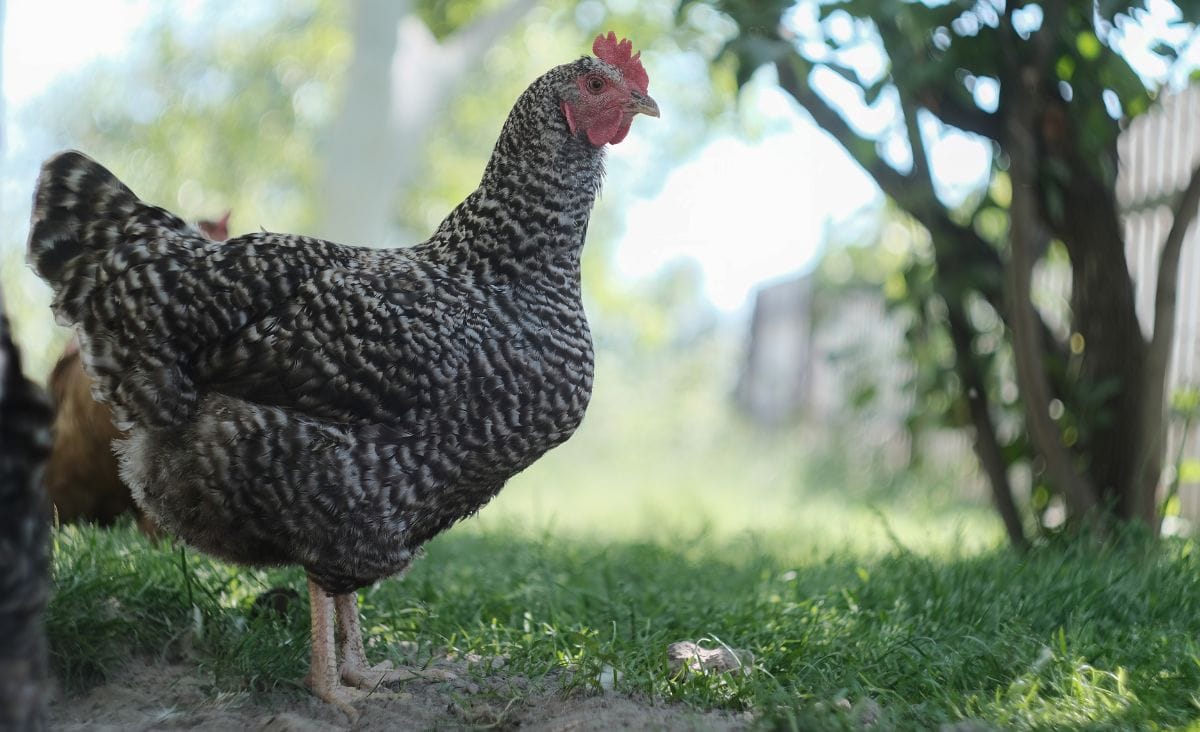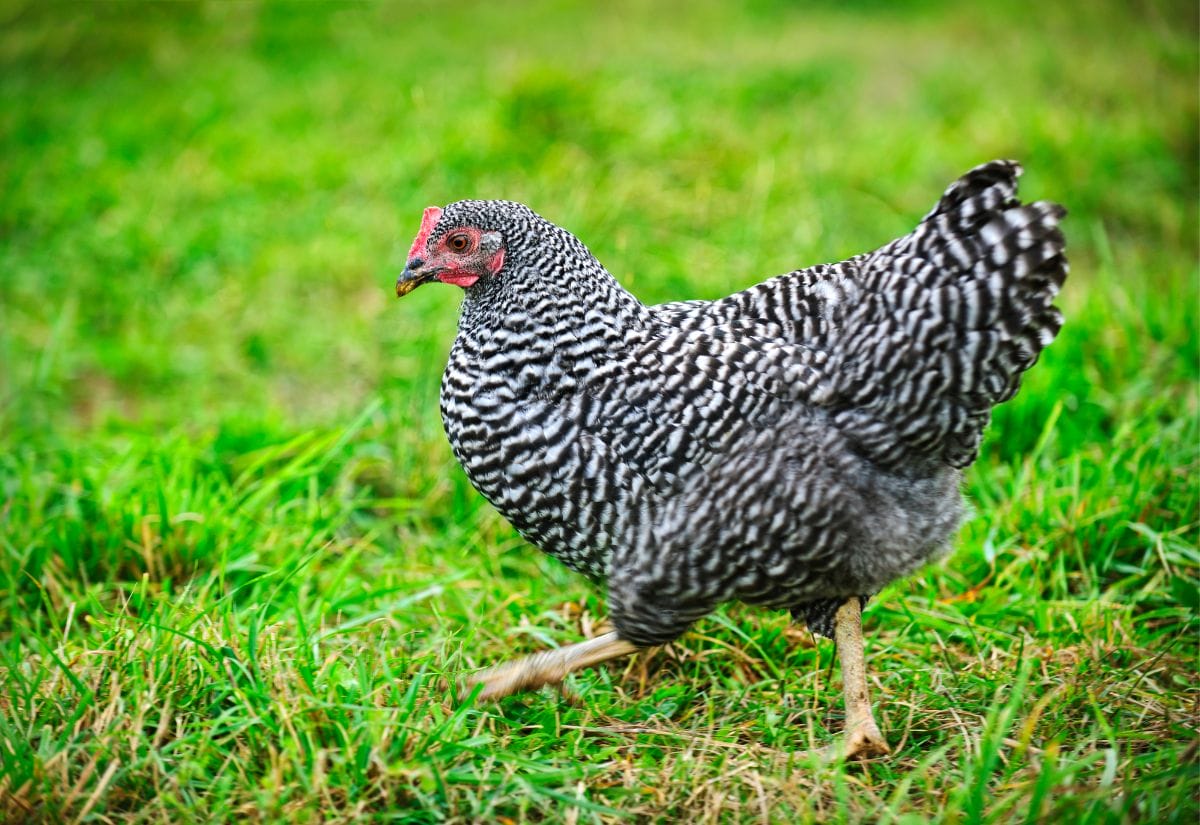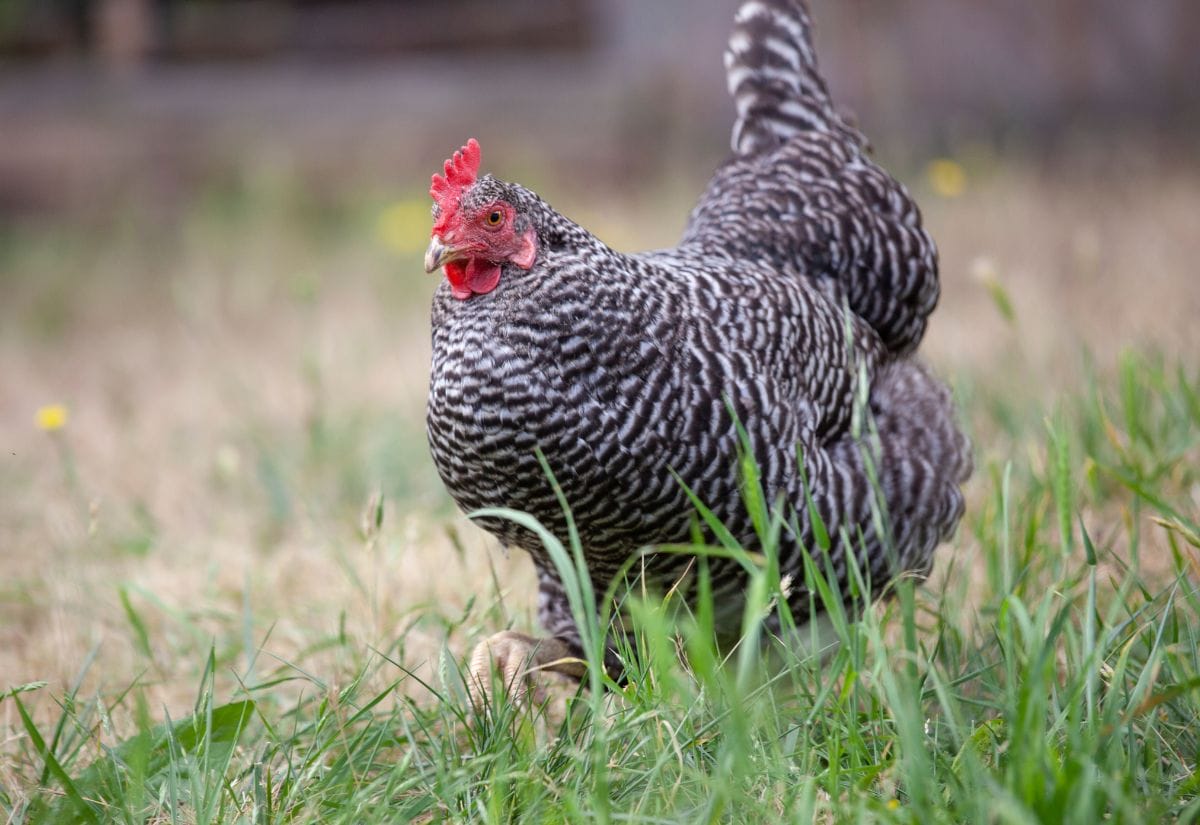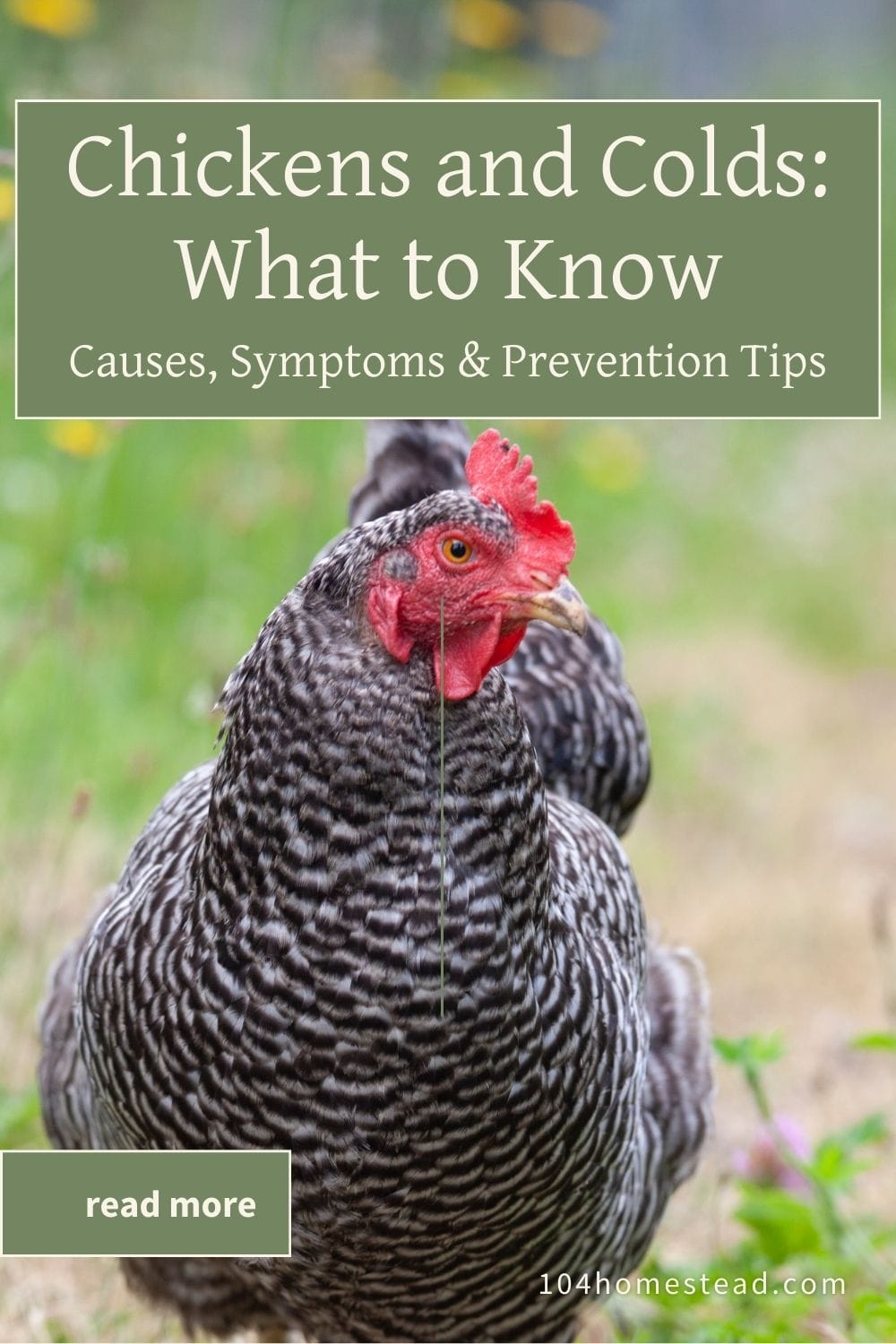Can Chickens Get Colds? What Sneezing, Coughing, and Weird Noises Mean
Wondering if chickens get colds? Here’s how to tell dust from real respiratory illness, what those sneezes mean, and the simple steps to protect your flock.

If you’ve ever walked into the coop and heard a weird sneeze echo off the roosts, you’re not alone. I’ve had mornings here in Maine when one hen lets out a honk so dramatic it stops me mid-step. It’s natural to wonder if chickens get colds like we do, or if that one dramatic sneeze is your sign to worry.
The short answer? Chickens don’t catch human colds, but they absolutely can develop respiratory infections that look a whole lot like one. Honestly, once I fix whatever’s off in the coop, the sneezing usually disappears almost immediately. And then there are the ones that spread fast if you don’t get ahead of them.
I’ll walk you through what those symptoms mean, how to tell irritation from illness, and the steps I take when one of my hens starts sounding a little stuffy.
What “A Cold” Looks Like in Chickens (and When to Worry)
By the time a chicken shows you something’s wrong, she’s probably been dealing with it awhile. It’s not a true cold, but a respiratory issue, and once you’ve heard it enough times, you know exactly what it is. Common symptoms include:
- Sneezing or coughing
- Clear or bubbly nasal discharge
- Rattling, rasping, or gurgling breaths
- Stretching the neck to breathe
- Swollen eyes or face
- Lethargy
- Drop in egg production or odd-shaped eggs
A single sneeze here and there isn’t a crisis. Chickens sneeze at dust just like we do. But persistent sneezing, discharge, or noisy breathing is worth paying attention to.
Why Chickens Get “Colds”: The Real Causes Behind Those Symptoms
Chickens don’t catch human colds or flu. Their respiratory issues usually fall under four categories, and knowing which one you’re dealing with makes all the difference.

Chronic Respiratory Disease (CRD / Mycoplasma): This one is incredibly common in backyard flocks. Once a bird has it, it’s usually a lifelong carrier. Most days, you’d never know, but stress triggers flare-ups (molting, moving birds around, sudden weather swings).
Viral infections (IBV, ILT): Infectious bronchitis (IBV) and infectious laryngotracheitis (ILT) can look like a cold but spread quickly. Some flocks are vaccinated, but not every strain is covered. Recovery varies, and ILT carriers can shed the virus for life.
Environmental irritation: Honestly, this is the one I see most often. Dusty bedding, high ammonia, poor ventilation, and damp litter can all trigger sneezing and raspy breaths without an infection behind it. Just because a coop looks clean doesn’t mean the air in there is healthy. If I walk in and a cloud of dust kicks up, or I get that sharp ammonia smell in my nose, I know exactly why my hens sound stuffy.
Cold stress and moisture: Chickens handle cold just fine. What they can’t handle is being cold and damp. On the rough winter mornings, I always check for condensation in the coop.
What I Do When a Chicken Starts Sneezing
At this point, I’ve chased down enough sneezes to know exactly where I start.
Start with Separation
A sick bird needs space so you can watch her closely and prevent unnecessary spread. If you’ve never set up a dedicated spot before, my guide to properly quarantining new or sick chickens walks you through creating a low-stress, practical setup that works in even small backyards.
Check the Coop Environment
This is usually the culprit. I look for:
- Damp or caked bedding
- Dusty corners
- Poor airflow
- Ammonia smell
If the coop feels damp or heavy, a cheap little hygrometer is the easiest way to see what’s really going on. Something reliable that shows temp and humidity at a glance.
Offer Fresh Water and Keep Hens Drinking
One of the first things I notice with a sick hen is that she stops drinking the way she should. When the weather swings or stress levels rise, I keep things simple with homemade electrolytes to help them stay hydrated while I sort out what’s going on.
Pay Attention to Behavior
If she’s still eating, drinking, and acting like herself, I usually blame dust or moisture before disease. If she’s lethargic, wheezing, or getting worse over 24 hours, I move faster.
Call a Vet When Symptoms are Severe
Gasping, swelling, bloody discharge, or a bird going downhill fast… those are vet-level problems. And if you ever lose a hen suddenly, your state lab can perform a necropsy (often for free or low cost). It’s not fun, but it gives incredibly valuable answers.

Cold Weather, Drafts & Winter Sneezes
Here in Maine, winter sneezes are almost a given. Not because the birds are “sick,” but because cold air + moisture = irritated airways.
The trick is finding that balance of dry air, no drafts, and decent airflow (easier said than done).
If winter prep still feels confusing, I break it all down in my post on keeping chickens warm in winter without electricity. Even tiny adjustments make a noticeable difference.
And while we’re talking winter… frozen water dishes are sneaky contributors to respiratory issues. Dehydration stresses the whole immune system. A good heated poultry waterer keeps the water flowing without adding extra moisture to the air.
Better Coop Ventilation = Fewer Respiratory Problems
A lot of “cold symptoms” come back to the coop, not the chicken. Ventilation is everything.
Dampness, ammonia, or clouds of dust? That’s your cue the coop needs attention.
I broke down the basic elements of a healthy coop in my guide on creating a well-ventilated, breathable chicken coop. It’s worth keeping around if your flock tends to sneeze their way through the year.
Still Wondering What Those Sneezes Mean?
These are the things people always want to know the moment they hear a sneeze in the coop.
Pin this so you’ll have it handy the next time a hen sounds a little stuffy.

A sneezing hen can be nothing or it can be the first clue that something in the coop needs attention. One thing experience has taught me is that it’s that moisture, dust, and stress start trouble long before the first sneeze.
If something seems off, follow that instinct and check it out.
Have you ever dealt with respiratory issues in your flock? I’d love to hear what tipped you off first. Share your story or questions in the comments.





My chickens constantly seem like they’re finding bugs to eat, but when I look I can’t see any bugs. Are they microscopic bugs and do checks have great vision? Thanks.
Chickens can always find something to eat, and sometimes you can’t always see what they’re eating. It’s probably fine, and yes, they have good eyesight.